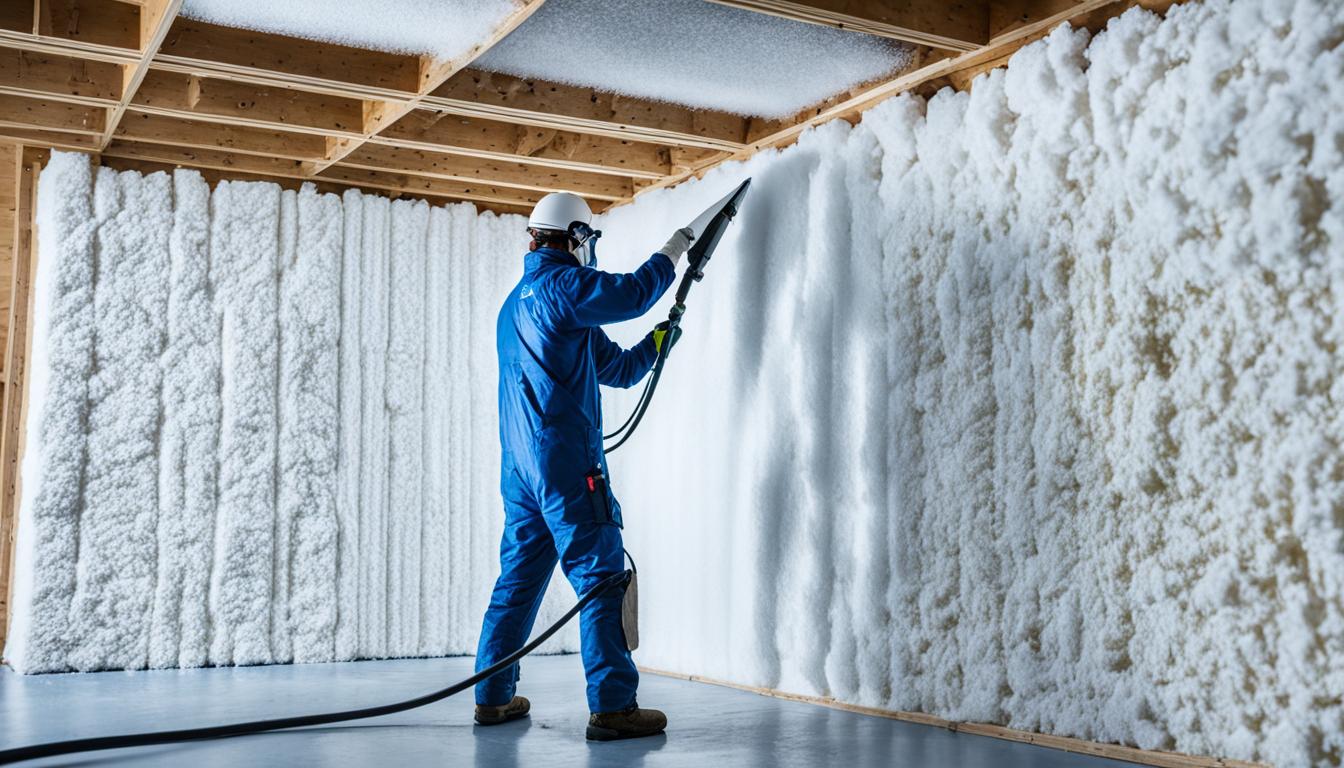Is Spray Foam Waterproof? Discover the Truth 2024
Ever thought if the spray foam insulation in your home is really waterproof? Many homeowners ask this because they want to keep their property safe from water damage. We'll look into the different spray foams and see how well they block water. You'll find the answers you've been looking for!
Key Takeaways
- Spray foam insulation can provide varying degrees of waterproofing depending on the type of foam used.
- Closed-cell spray foam is more effective at creating a water-resistant barrier compared to open-cell spray foam.
- Proper installation and application of spray foam are crucial for achieving maximum waterproofing benefits.
- Spray foam can be an effective solution for waterproofing roofs, basements, and other areas of a home or building.
- Understanding the unique properties of different spray foam types can help homeowners make informed decisions about their insulation needs.

Understanding the Different Types of Spray Foam
Spray foam is a top choice for insulating homes and buildings. But, not all spray foam is the same. There are two main types: closed-cell and open-cell. Knowing the differences helps you pick the right insulation for your needs.
Read More: Which Type of Spray Foam Insulation is Best?
Closed-Cell Spray Foam
Closed-cell spray foam is a dense, rigid material. It's great for keeping out air, moisture, and heat. This makes it perfect for weatherproofing and saving energy.
It has a high R-value, which means it stops heat from flowing. It also keeps air from getting in.
Open-Cell Spray Foam
Open-cell spray foam is lighter and lets air move through it. It's good for places that need to breathe. Even though it doesn't block heat as well as closed-cell foam, it still keeps your space comfortable.
Read More: Closed Cell vs Open Cell Foam
The Waterproof Properties of Closed-Cell Spray Foam
Closed-cell spray foam is a top choice for waterproofing. It has a special structure that stops water and moisture. This foam is better at keeping out water than its open-cell version, protecting against water damage.
This foam creates a tight seal that keeps water out. It stops water from getting through and harming the materials below. It's great for places like roofs, basements, and areas often wet.
Not only does it block water, but it also resists moisture. Its structure keeps water from soaking in, so it stays effective and strong in damp places. This makes it a versatile and dependable option for many waterproofing needs.
Read More: Is closed cell foam waterproof?
Is Spray Foam Waterproof?
Many people wonder if spray foam insulation can keep water out. Closed-cell spray foam is great at keeping water out. But, open-cell spray foam's ability to handle moisture is also important to look at.
Moisture Resistance of Open-Cell Spray Foam
Open-cell spray foam has a special structure that helps with moisture. It's not as good at keeping water out as closed-cell foam. Instead, it lets water vapor through, which stops moisture from building up in the insulation.
This makes open-cell spray foam good for places where you don't need total waterproofing but need to manage moisture. It can help control humidity and stop mold and mildew from growing. This is especially useful in damp areas like attics and walls.
Open-cell spray foam isn't as good at keeping water out as closed-cell foam. But, it's great at managing moisture in certain situations. Knowing how open-cell spray foam works helps people choose the right insulation for their projects.
Read More: Is Expanding Foam Waterproof?
Applications for Waterproof Spray Foam
Waterproof spray foam is a versatile solution with many uses. It shines in roofing and basement waterproofing. Its great moisture resistance and sealing abilities make it perfect for keeping structures safe from water damage.
Read More: What is spray foam insulation used for?
Roofing and Basement Waterproofing
For roofing, waterproof spray foam acts as a strong barrier against the weather. It creates a seamless layer that stops water leaks and protects your home or building for a long time. It's also great for basement waterproofing, keeping these areas safe from too much moisture and flooding.
This spray foam sealant is a top choice for keeping water out in roofing and basements. It not only blocks water but also keeps the building strong, avoiding expensive repairs later. People who own homes and contractors trust spray foam for its waterproofing abilities.
Read More: Does spray foam stop water?
Conclusion
This article has looked into how spray foam insulation keeps water out. We've seen that both closed-cell and open-cell types have their own benefits for staying dry and keeping moisture away.
Closed-cell spray foam is a top choice for keeping water out. It creates a strong water barrier that protects buildings from water damage. Open-cell spray foam, on the other hand, doesn't block water as well. Yet, it's great at keeping moisture away and helping to keep the air inside healthy and water-repellent.
Choosing between closed-cell and open-cell spray foam depends on what you need for your project. If you want a solid waterproofing solution for your roof or basement, spray foam is a good option. It also helps improve indoor air quality by keeping moisture out.
Read More: Spray Foam Insulation Cost Per Square Foot
FAQ
Is spray foam insulation waterproof?
Spray foam insulation's waterproofness depends on the type used. Closed-cell spray foam is mostly waterproof. Open-cell spray foam is not fully waterproof but resists moisture well.
What makes closed-cell spray foam waterproof?
Closed-cell spray foam is waterproof because of its dense, closed structure. This design stops water from getting through. It's perfect for places needing strong moisture protection.
How does open-cell spray foam perform in terms of water resistance?
Open-cell spray foam is more open and porous, letting water and moisture in. It's not fully waterproof but still resists moisture well. It's good for places where full waterproofing isn't needed.
Where can waterproof spray foam be used?
Waterproof spray foam, like closed-cell, is often used for roofs and basements. It creates a solid barrier against water, keeping these areas dry and safe from moisture damage.
Can spray foam be used as a moisture barrier?
Yes, spray foam can act as a moisture barrier, especially closed-cell foam. Its structure and low permeability stop water and moisture. This helps prevent condensation and reduces water-related problems.
Is spray foam sealant waterproof?
Spray foam sealants can be waterproof if applied right. They expand to fill gaps and seal openings, keeping water out. The waterproofness of these sealants varies by product and use.



